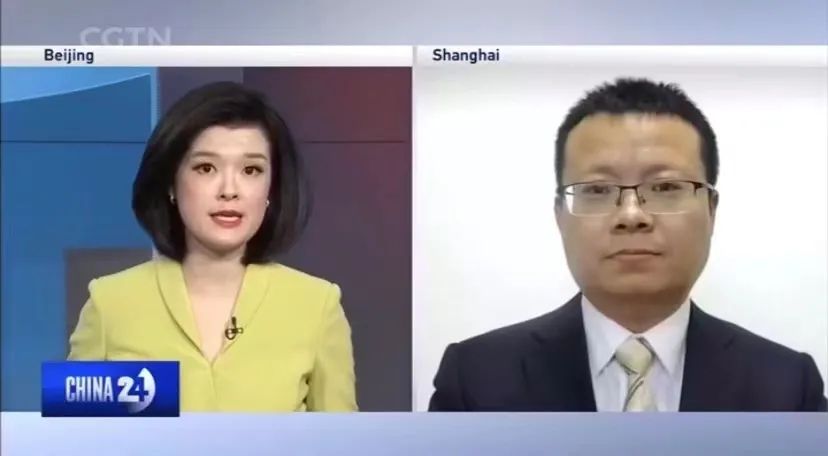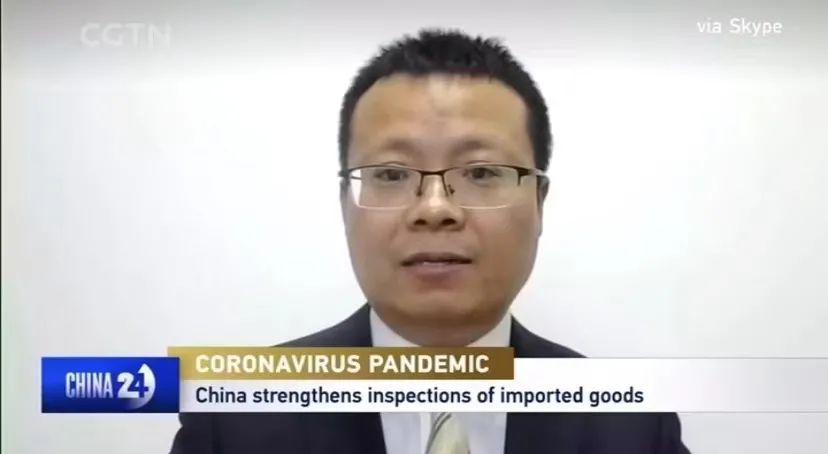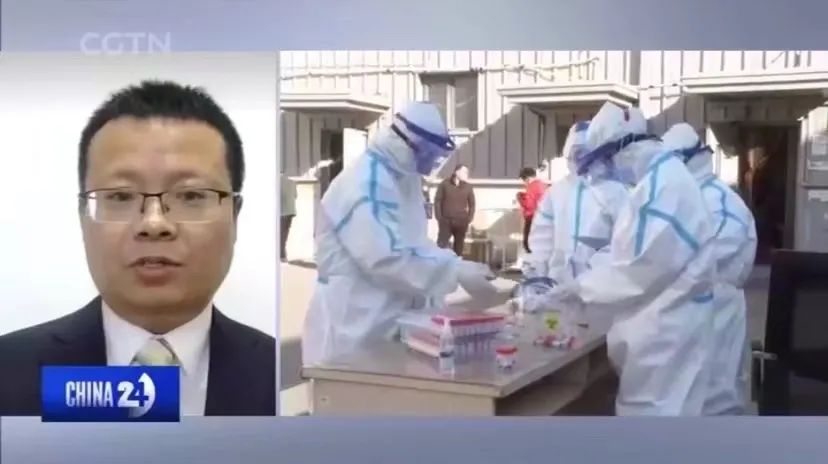上海交大赵大海接受央视专访:公众无需过度担心通过进口冷冻食品的新冠传播
上海交通大学国际与公共事务学院博士生导师、上海交通大学-耶鲁大学卫生政策联合研究中心执行主任赵大海,自新冠肺炎疫情暴发以来,对于新冠疫情暴发、防控以及卫生政策第41次接受中央电视台专访,也是第66次接受央视、上视专访。2020年11月26日,赵大海在中央电视台英语频道的《中国24小时》节目,就食品或食品外包装传播新冠病毒的可能性,以及公众如何防范通过进口冷冻食品的新冠传播等话题进行了直播访谈。现将访谈内容翻译并摘录如下。

主持人:世界卫生组织说人们不太可能从食物或食物外包装中感染新冠肺炎病毒。这似乎与中国政府的新冠疫情防控观点相矛盾,您是怎么看待这个问题的?

赵大海:通过对我国进口食品和食品包装的大样本核酸检测发现,进口食品和食品外包装存在新冠病毒的概率确实很低。与此同时,以往在北京新发地、大连和青岛等地的新冠疫情局部暴发的事实又充分佐证了新冠病毒确实可以存在于食品或食品外包装,并且可以引起暴发。因此,我认为世卫组织和中国政府的这两个观点并不矛盾。具体而言,世界卫生组织认为从食品或食品外包装中感染新冠病毒的概率处于较低水平;然而,为了完全控制新冠的流行,即便是较低传播可能的渠道,也应充分重视。否则,对一个国家而言,是不可能控制住新冠疫情的。
主持人:人们有必要担心通过接触进口冷冻食品而感染新冠肺炎病毒吗?普通消费者如果想购买进口冷冻食品,怎么能保证安全呢?
赵大海:鉴于绝大多数进口冷冻食品是经过了专业机构的新冠病毒检测或消毒,人们不必过分担心进口冷冻食品的安全性。与此同时,人们也需要遵守两个原则。首先,当人们购买进口冷冻食品时,应该去正规超市;不要购买没有进口检验检疫证明的进口冷冻食品。第二,人们在烹调冷冻进口食品时,需要采取常规的防护措施,包括操作前后的洗手、戴手套和口罩、对炊具进行消毒等。另外,对于进口的冷冻食品,人们在食用前应彻底煮熟。
供稿者:国务学院
日期:2020年11月27日
Dahai ZHAO’s Exclusive Interview with CGTN: The public does not need to worry too much about the spread of the novel coronavirus through imported frozen food
Dahai Zhao, a doctoral supervisor at the School of International and Public Affairs of Shanghai Jiao Tong University and Executive Director of Shanghai Jiao Tong University-Yale University Joint Research Center for Health Policy, has been interviewed by CGTN for the 41nd time (the 66nd time by CGTN / ShanghaiTV) since the COVID-19 pandemic. On November 26, 2020, Zhao commented on Novel Coronavirus possibilities for food or food packaging transmission and how can the public prevent novel coronavirus transmission through imported frozen foods on “China 24” of CGTN.
Anchor: WHO has said it's unlikely for people to contract Covid-19 from food or food packaging. This seems contradictory to Chinese authorities' opinion. How would you explain this?
ZHAO: Through the nucleic acid detection on the samplings of imported food and food packaging in China, we have found that the probability of positive detection is really at a very low level. However, considering the past experiences of local outbreak of COVID-19 in Beijing Xinfadi, Dalian, and Qingdao, it is well confirmed that COVID-19 can be transmitted via food or food packaging. Therefore, the two arguments from WHO and Chinese authorities are not contradictory. Specifically, what WHO argued that the probability of contracting Covid-19 from food or food packaging is at a low level; however, in order to control the pandemic of COVID-19 completely, the low probability of contracting channel is also needed to be paid full attention. Or else, it is impossible for a country to control the pandemic of COVID-19.
Anchor: Should people be worried about getting the COVID-19 virus through frozen food imports? How could ordinary consumers stay safe if they want to buy imported frozen food?
ZHAO: Considering the most majority of imported frozen food have been detected or disinfected by the professional organizations, it is not necessary for people to excessively worry about the safety of the imported frozen food. However, two suggestions are also offered. First, when people buy the imported frozen food, they should go to regular supermarkets. Citizens do not buy the imported frozen food without import inspection and quarantine certificate. Second, when people cook the frozen imported food, they try to adopt the regular prevention method such as washing hands frequently, wearing the glove and the face mask, and disinfecting the cookers. In addition, for the imported frozen food, people should cook it thoroughly before eating.
Contributor: SIPA, SJTU
Data: November 27, 2020

